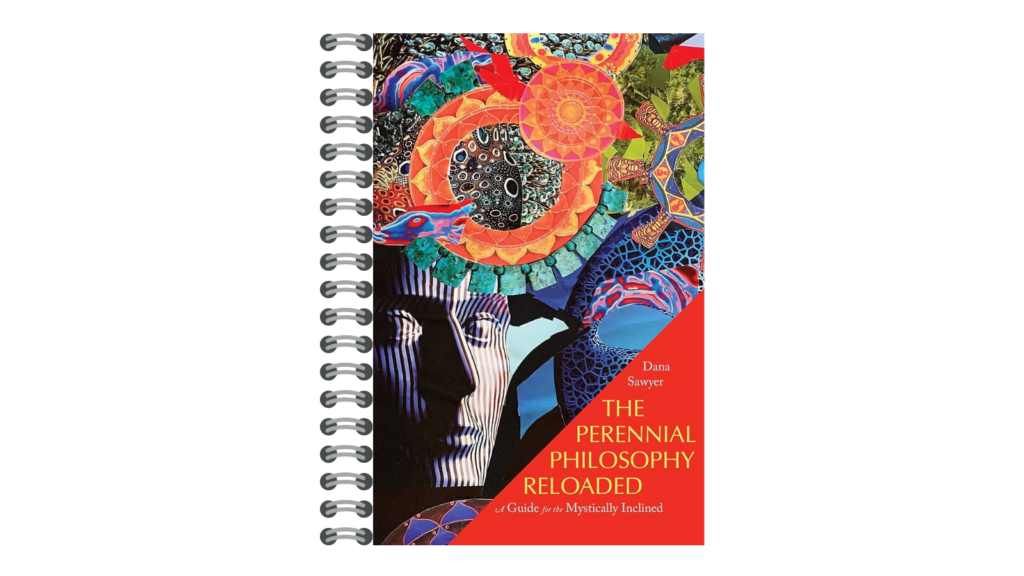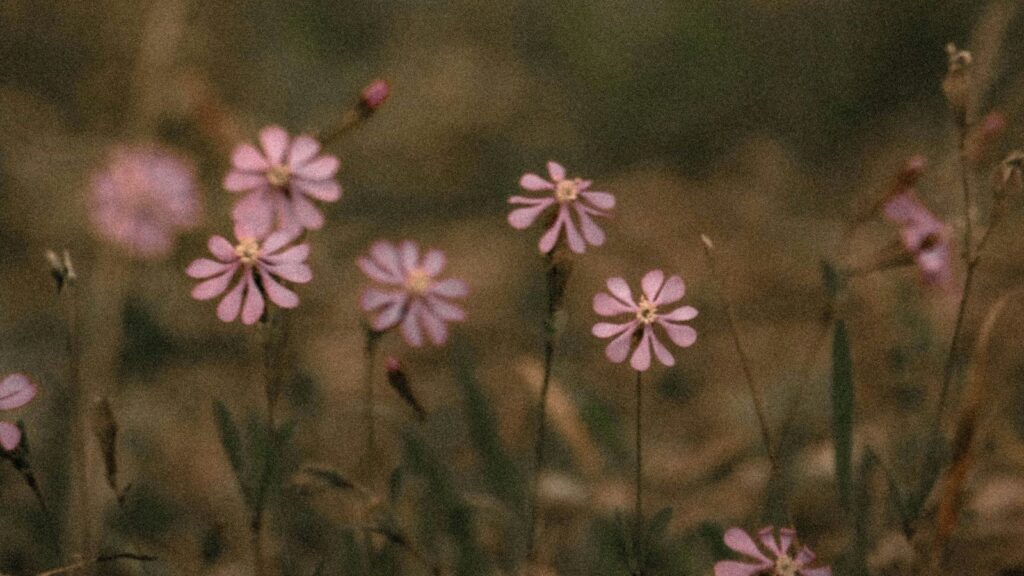FOR IMMEDIATE RELEASE
July 9, 2024
“With his luminous blend of scholarship and accessibility, Dana Sawyer has distilled the quintessence of the inter-spiritual promise into an elixir that is bothnourishing and entertaining.”
Mirabai Starr
Unpacks the philosophy-spirituality that connects Aldous Huxley and Ram Dass with Mirabai Starr and Richard Rohr.

During the 1960s and 70s, “Perennial Philosophy” was the most popular theory regarding what the world’s mystical traditions held in common, touted as the best platform for understanding human consciousness, including how to expand it therapeutically with meditation, yoga, and psychedelic drugs. Books by Aldous Huxley, Alan Watts, Huston Smith, Stanislav Grof, Frances Vaughan, Ram Dass, and other “Perennialists” sold like hotcakes. But during the 80s, this shared perspective fell out of fashion.
The Perennial Philosophy Reloaded: A Guide for the Mystically Inclined (Trade paperback; ISBN 978-1-958972298; $18.99) corrects common errors in understanding the Perennial Philosophy while providing a short, up-to-date overview of the general perspective. Dana Sawyer reveals the continued relevance of Perennial Philosophy during this time psychedelic renaissance, when many are seeking ways to interpret their experiences, inside an engaging narrative free of philosophical shop talk. The result is a demonstration of how Perennial Philosophy applies to anyone interested in self-realization.
“A unique, in-depth study of the Unitive Mystical Experience, the red thread running through the mystics’ insights across time and space, articulated in the body of knowledge we know as Perennial Philosophy.”
Shantena Augusto Sabbadini, PhD, author, Pilgrimages to Emptiness: Rethinking Reality through Quantum Physics
“The Perennial Philosophy Reloaded is both provocative and nourishing and an indispensable read for all of us who know both the dire straits we are in and the massive opportunity for renewal and rebirth that our global dark night offers.”
Andrew Harvery
The Perennial Philosophy is also in paperback and audiobook format.
For author interviews, or media review copies of The Perennial Philosophy Reloaded: A Guide for the Mystically Inclined, contact: Jon Sweeney, religion editor, jon@monkfishpublishing.com.
Dana Sawyer is professor emeritus of philosophy and world religions at Maine College of Art & Design in Portland. He frequently teaches at the Esalen Institute in Big Sur, California and is author of articles for Reality Sandwich, Tricycle, Parabola, and Yoga Journal. In 2002, he published Aldous Huxley: A Biography (Crossroad Publishing). Subsequently, Sawyer was approached by Huston Smith to write his authorized biography, which was published in 2014: Huston Smith: Wisdomkeeper (Fons VitaePress) and endorsed, on its back cover, by Jeffrey Kripal, Deepak Chopra, and H.H. the Dalai Lama.
A Letter from the Author
“The total number of minds in the universe is one. In fact, consciousness is a singularity phasing within all beings.”
—Erwin Schrodinger, winner of the 1933 Nobel Prize for physics.
The primary interpretation of spiritual experiences triggered by psychedelic substances back in the 1960s and 1970s was that shared by Aldous Huxley, Alan Watts, Frances Vaughan, Stanislav Grof, and Richard Alpert. Known as the perennial philosophy, it was inspired by Huxley’s 1945 book of the same name, contending that there is a particular type of mystical experience running across most of the world’s mystical traditions.
Specifically, Huxley argued that mystics from a wide range of backgrounds often have experiences that register as “oneness with reality” or a sense of achieving unity with nature—or the view that “everything is really only one thing, and I’m not only a part of that, I AM that.” Huxley termed such experience the “unitive knowledge,” covering the realization that the essence of our being is one with the essence of all being. And this view, that our psyche has a transpersonal aspect which transcends our individuality, became the inspiration for myriad philosophers, psychologists, and scholars of religious studies at the time.
Consequently, the perennial philosophy helped establish the entire first wave of enthusiasm for psychedelics by offering a compelling interpretation of the unitive experiences triggered by them. Related to this point, all of the authors mentioned in the first line of this paragraph believed they had had an experience of Huxley’s “unitive knowledge” while on one or other of the substances. So their books that shared the perennial philosophy as an interpretation of their unitive experiences—including Huxley’s Doors of Perception, Alan Watts’ The Joyous Cosmology, and Alpert’s (and Leary’s and Metzner’s) The Psychedelic Experience—became staples on the bookshelves of all early psychonauts. So what IS the perennial philosophy?
Huxley argued that we don’t need to invent spiritualities for ourselves because there’s an implicit spirituality built into our very nature, including our nature’s relationship to Nature itself. Specifically, that spirituality involves an experiential apprehension of the fact that our consciousness transcends our individuality, connecting us to all other things. This experience, Huxley believed, may be interpreted differently in different religions, but it arises, and has been described, inside most—if not all—of them. In summary, his basic position regarding our implicit and perennial spirituality corresponds to what the Sufi mystic Rumi meant when he wrote, “You are not a drop in the ocean. You are the entire ocean in a drop.”
The first wave of perennial philosophers were deeply enthused by what this implicit spirituality might mean for the potentialities of consciousness—seeing a wide range of benefits they thought could result from opening our individual consciousness into the sea of consciousness that Huxley termed “Mind at Large.” For instance, they saw promise for a deeper sense of well-being, an expansion of identity beyond the dictates of the ego, a feeling of oneness with nature, and a direct grokking of the reality that our existence is inherently meaningful. And via this first wave of perennialists, young people in the counterculture were also exploring these possibilities.
Unfortunately, soon after the U.S. government cracked down on the use of psychedelics—which literally closed the doors of perception for researchers as well as the counterculture—the perennial philosophy also fell out of favor. Its understanding of what I term unitive mystical experiences or UMEs was repeatedly attacked in academia, by post-modernists, who placed greater value on the differences between social groups and cultures than on their similarities, and by religious protectionists, who felt the perennial philosophy, as a thread running across the traditions, undermined the exclusive authority of their particular religion.
However, the perennial philosophy didn’t go away; in fact, waves of perennialists, including Peter Russell, Jean Houston, Deepak Chopra, and Ken Wilber — and today, Rupert Spira, Steve Taylor, Rabbi Rami Shapiro, Mirabai Starr, Richard Rohr, and others—have broadened and given fresh nuance to the position. And now, with the psychedelic renaissance moving into high gear, there is a fresh wave of psychonauts looking to interpret their unitive experiences, so the perennial philosophy is also being reborn.
In my new book, The Perennial Philosophy Reloaded, I share, clarify, and update the original position of Huxley, Alan Watts, Huston Smith, Frances Vaughan, Stanislav Grof, Ram Dass, and others, adding new additions to their well-established framework in everyday language free of academic shop talk. What are the unitive mystical experiences and why are they so significant?
This short book begins with an overview of the perennial philosophy as a family of interrelated theories regarding UMEs and then moves on to describe the implications of that viewpoint for such topics as religion, psychology, art, ecology, personal relationships, and psychedelic spirituality. The result? Well, the possibilities are at least as astounding as Huxley and others first believed.
Huxley once argued that our latent potentialities of consciousness, including our ability to experientially transcend our individuality, are our planet’s greatest undeveloped natural resource. Realizing that we are one with nature and part of an integral phenomenon called the universe would surely help us to stop contending against both nature and each other, opening the possibility of a culture built upon expanded consciousness and synergistic interaction with the world around us. Building off this vision and hope, Frances Vaughan, the brilliant transpersonal psychologist, once wrote, “We have created a global situation that demands unprecedented psychological and social maturation.
In the past, we could consume without depletion, discard without pollution, multiply without overpopulation, and fight without fear of extinction. In other words, we could act out our immaturities, whereas now we need to outgrow them.” Both she and Huxley believed that an upgrade in consciousness is not only possible by critical to this upgrade—and they also believed psychedelics could help trigger it. By the way, so do I—hence my ‘reloading’ of the perennial philosophy.
Today, one thing about psychedelics that we knew less well during the 1960s and early 1970s is that integration is critical for achieving the full benefits of the substances. Psilocybin can trigger a full blown unitive mystical experience, as studies at Johns Hopkins have demonstrated, but such an experience has little value if its gifts are not brought back into daily life. “Kindness,” Huxley wrote, “is applied mysticism,” but kindness won’t result if mystical experiences are not properly integrated.
This is exactly why I personally find the perennial philosophy so valuable, agreeing with Peter Sjostedt-Hughes, another philosopher of psychedelic experience, that exploring theoretical models—to find interpretations of our experiences that resonate deeply with us—is a useful (and perhaps critical) aspect of integration.
My hope is that readers of The Perennial Philosophy Reloaded will have the same experience as I once had while reading Huxley, Watts, Huston Smith, and Vaughan—specifically, “Hey, this book is giving me words to describe what I’m experiencing!” My hope is that together we can work to integrate our full capacities of consciousness into a much more awakened society than the consumerist, frenetic and self-centered version we’ve been mesmerized by—and subject to—for far too long.
As more and more people have unitive mystical experiences—on psychedelics or otherwise, I believe more and more people will find the perennial philosophy a useful and inspiring viewpoint from which to embrace them.















